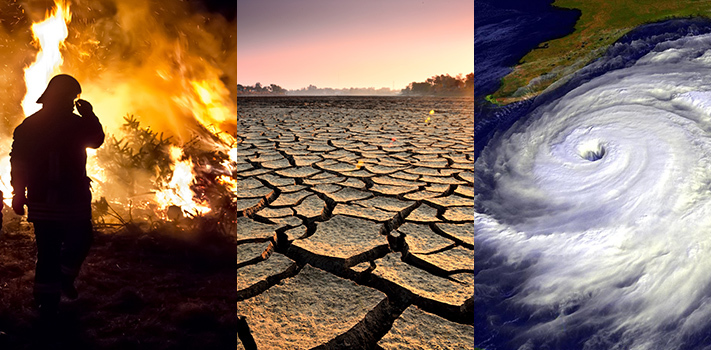Climate change role clear in many extreme events, study finds

Climate change is to blame for the majority of the heatwaves being recorded around the planet but the relation to other extreme events and their impacts on society is less clear, according to a study.
“I think on the one hand we overestimate climate change because it’s now quite common that every time an extreme event happens, there is a big assumption that climate change is playing a big role, which is not always the case,” said Friederike Otto, a climate change and environment professor at the Grantham Institute at Imperial College London, who was one of the lead authors of the research.
“But on the other hand, we really underestimate those events where climate change does play a role in what the costs are, especially the non-economic costs of extreme weather events to our societies.”
In the study published in the journal Environmental Research: Climate from IOP Publishing, Otto’s team used “attribution science” to pore over available international data, literature and climate models – as well as the latest Intergovernmental Panel on Climate Change reports – and calculate how human-induced climate change is affecting the impact of five types of extreme weather events: heatwaves, heavy rainfall, drought, wildfires and tropical cyclones.
They say that in the case of heatwaves, the role of climate change is unequivocal, and that the average and extreme heat levels in every continent across the globe are increasing specifically because of human-caused climate change.
A heatwave with a one in 50 chance of happening in pre-industrial times is now almost five times more likely to happen and will be 1.2C hotter, according to an IPCC report. In the past 20 years there have been 157,000 deaths from 34 heatwaves, according to data from the EMDAT disaster database. Yet the impact of human-induced climate change on heatwaves and the repercussions are still largely underestimated.
“One big reason why we underestimate heatwaves so dramatically is because no one’s dropping dead on the street during a heatwave, or at least very few people do,” Otto said.
Most people died from pre-existing conditions suddenly becoming acute, Otto said, and this often did not show up in data. Wildfires were also one of the big climate impacts not talked about enough, she said.
For other events such as droughts, floods and tropical cyclones, there is a more nuanced link to climate change. For example, there are some regions of the world where droughts are becoming worse because of human-caused climate change, such as southern Africa, Otto notes, while in other droughts the climate change signal is either not there or very small.
